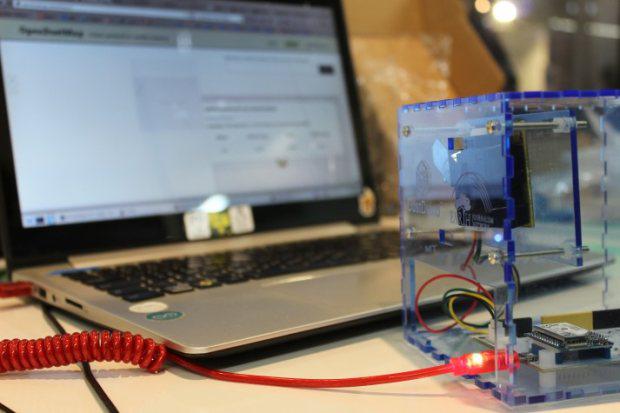
. Photo: Disclosure
The free software offers a range of possibilities and have been used in several projects that make people’s lives. An initiative is creating a network of sensors that will capture air samples, analyze and report the quality of what we’re breathing in large or small towns.
READ MORE
Free software is able to promote small revolution
The design of the prototype, made with Arduino, is a measurement of particle fossil fuel or burnt and reports in real time the changes throughout the day. “It can detect particles of 2.5 to 10 micômetros, and reading particles of that size in the air can infer in real time if there is burning near a forest that represents danger of devastation, for example,” explains Ricardo Guimarães, the Guima Digitally Ecology Association developer.
All the information is sent to the Opendustmap platform where you can click on each of the points and see a timeline with the measurements. The idea is that the collaborative map grow, with the participation of ordinary people interested in measuring air quality in their neighborhoods. To install, simply set the wifi and geo-referencing the position of your home.
The installation and configuration process has been taught in hackerlabs (hackers workshops) carried out in Largo da Batata, in São Paulo, along with the collective drizzle Hacker Club. It is in Largo da Batata, too, which is installed the first prototype of the measurement of air quality. At a newsstand on Avenida Faria Lima, connected to the sensor, it installed a LED strip that tells air quality indices to people in the region.
The sensor is a collaborative project done with the Dustduíno.org, which is implementing the software, and the Earth Journalismo Network, which funded the prototyping and development, and the Digital Ecology Association, which already has some initiatives such as the Urban Code.
The first stage of the project has two prototypes already in operation in Largo da Batata and Minhocão in São Paulo, and another 35 ready for installation. The criteria used to choose sites will be the critical points as avenues that have intense movement of vehicles.
The current cost of equipment of these is approximately $ 100, including particulate quality module, Arduino and wifi. “It’s a good value if you consider that it is a scientific instrument of high precision,” considers Guima. He further states that the value tends to decrease, since the equipment should become prototyped on a large scale.
By being done in open platform, people can add more components as different sensors to capture CO² , temperature, humidity. So he can pass to send more data to the platform, according to the needs of each point.
No comments:
Post a Comment